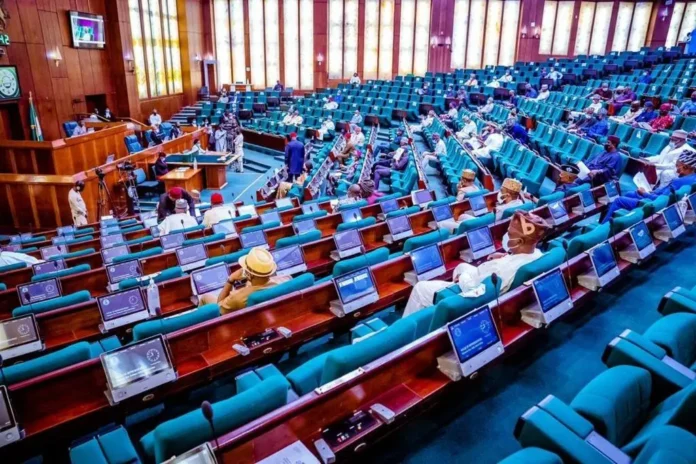The House of Representatives passed a bill for the second reading on Tuesday, proposing an increase in the retirement age of policemen from 60 to 65 years.
Alternatively, the bill suggests extending the service years of a policeman from 35 to 40 years. If enacted, a policeman in the country would retire upon reaching 65 years of age or after serving for 40 years, whichever comes first.
The Police Act Amendment Bill was co-sponsored by the Speaker of the House, Abbas Tajudeen, and the Chairman of the House Committee on Police Affairs, Abubakar Yalleman.
They stated that the bill aims to enhance the experience and expertise of the police workforce, retain experienced personnel, and reduce the cost of training and recruiting new officers.
Additionally, they believe the bill will improve morale, performance, and job satisfaction, as well as address the shortage of experienced police personnel.
He said, ”This experience is needed especially in this time of insecurity when experienced police officers are needed to help tackle insecurity in the country,”
During the debate, Yalleman emphasized the necessity of the amendment, citing the need to utilize the experience of trained officers who have served for a considerable number of years, especially in addressing the current security challenges in the country.
In a related development during the same plenary session, lawmakers considered a bill for a second reading seeking to remove provisions requiring public servants to declare the assets of their spouses.
ALSO READ: Oyo nurses, midwives begin indefinite strike Wednesday
The bill proposes the deletion of Section 23(7) of the Code of Conduct Act, arguing that it contradicts the Constitution, which grants the President the power of prerogative of mercy.
Olawale Raji, the member representing Epe Federal Constituency of Lagos State, initiated the bill to amend the Code of Conduct Act.
Raji argued that the provision requiring public officers to declare their spouses’ assets is unfair and conflicts with the principles of fairness.
He also highlighted that the 1999 Constitution grants the President the authority to grant amnesty to individuals under the prerogative of mercy policy, asserting that Section 23(7) of the Code of Conduct Bureau and Tribunal Act is in conflict with the Constitution.
House Minority Leader Kingsley Chinda, however, expressed a differing view.
He stated that the provision requiring the declaration of a spouse’s assets was made in good faith to address instances where public officers conceal stolen wealth under their spouses’ names.
He said, “Anyone who declares the assets of his or her spouse be liable to prosecution if the information so declared is found to be false.”
He suggested reducing the age limit for children of public officeholders from 21 to 18, arguing that at 18, a child can take responsibility for themselves.
Following the House’s resolution, the bill to amend the Code of Conduct Bureau and Tribunal Act was referred to the Committee on Anti-Corruption, while the bill on the amendment of the Police Act was referred to the Committee on Police Affairs for further legislative action.




